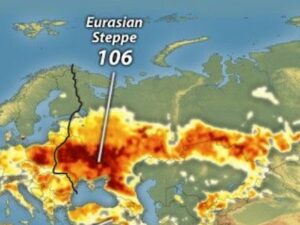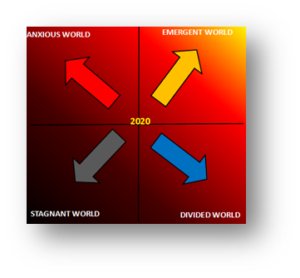An Incentive for War
Context
In 2003, I asked the diplomat Sir Jeremy Greenstock at a dinner in the House of Lords, what role free access to Middle East oil and gas had played in the decision to invade Iraq. At the time, the Segmented World Model was in its infancy but even then, the importance of the ‘three drivers’ pointed to a simple rationale for the invasion.
Sir Jeremy, who had been appointed as the UK’s Special Representative for Iraq within the Coalition Provisional Authority, replied without hesitation that he could not recall oil ever being discussed as a motive for the war.
His reply astonished me – as it did a well-known Cambridge law professor sitting close to me, who remarked, loud enough for most to hear: ‘well it bloody well should’ve!’
Of course, Greenstock was being diplomatic and the talk then turned to the rationale the public had been fed about Saddam – his threat to use WMD – a claim that, in fairness to Sir Jeremy, he disputed in subsequent interviews after his retirement from the FCA.
War is an expensive business for both sides and needs a good rationale to sustain it – not just in terms of cost (ca. US $ 2Tn, net to the US, see Crawford: Cost of War Project 2020), but also in terms of global trust and reputation.
But in the case of Iraq, the US had a rock solid rationale – aided, of course, by Saddam’s inhuman treatment of the Kurds and other opposing groups. The numbers were clear even in the 1980’s that the US was increasingly becoming dependant on Middle East oil. To illustrate that, in 2008 – five years after the war had ended – 63% of all oil consumed in the US was imported – much of it coming from the Gulf. When Saddam threatened to disrupt that supply through blocking the Straits of Hormuz – his fate was sealed. The first Resource Wars of the ‘Full-Up’ planet (see Dialogues 1-6 in thesegmentedworld.com) were launched. Clinton’s strategists may have said: ‘It’s the Economy stupid’ to summarise the driver for domestic politics in 1992, but whispering in the ear of George Bush, and later his son, was a similarly-phrased global message for the US: ‘It’s Oil stupid.
The RUSSO-Block’s war against Ukraine is, in many ways, quite different from the AM-Block’s decision to invade Iraq. But both arise from a perceived threat to a Powerblock’s existence. In the case of Iraq, the loss of a vital resource, in the case of Ukraine, an indirect military threat from the AM, EURO Block’s military alliance, NATO.
In both cases false narratives have been used to disguise these insecurities: Bush’s WMD and Putin’s denazification claim. Both also have visionary elements attached to them: a succession of US Presidents eagerly supporting the spread of democracy across the world and Putin’s obsession with restoring the USSR to its former self.
But none of these rationale – even in RUSSO-Block with no Press pushback – fundamentally address the existential concern. Something else is needed to justify the costs and maintain the support of the powerful surrounding the leader.
For the Bush’s it was the unquestionable threat to the free access to oil . For the RUSSO-Block – not necessarily Putin, as this may not be prominent in his rationale – but for the calculating strategists in the Kremlin concerned with protecting their vast territory, it was another resource: securing the most lucrative part of the huge Eurasian Steppe food belt.
Million of hectares of land used for traditional crops (excludes pastureland) (STATFOR 2011)
The re-incorporation of Ukraine would give the RUSSO-Block more than 80% control of the traditional crop belt running across Eurasia, that accounts for ca. 1/4 world’s wheat exports; ca. 1/5 barley and maize and over 60% of all sunflower oil – an important contributor to edible oils, globally (see Our-World-in-Data Latest Research).
From the RUSSO-Block’s strategists viewpoint: more leverage; more protection – and not just against the AM, EURO-Blocks but the whole world. A local action with global implications; a prize, like the freeing-up of oil supplies in the Middle East, that fully justifies invasion and a protracted war.
But as the negotiators sit down to talk peace, this consideration may not appear in the diplomats notes – or if it does, as with Sir Jeremy, will not be discussed. Nevertheless, it is a factor that will not be missed by those concerned with the cold calculus of power.
From a Segmented World Model Perspective, the outcome is likely to be a significant contributor to the direction the world takes on its journey across the GC-FI Matrix over the next thirty years.
David Nash
29/03/22





